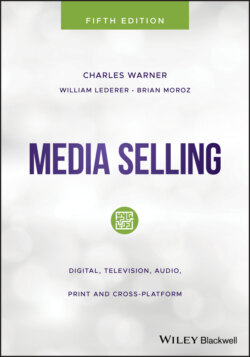Читать книгу Media Selling - Warner Charles Dudley - Страница 92
Reasons people do not follow the rules
ОглавлениеThere are many reasons for unethical behavior, but among the most common are these. (1) People have a strong tendency to bow to authority and follow orders from higher‐ups, giving them the excuse that “I was just following orders.” (2) People have a strong tendency to bow to the social pressure and conformity of their peer group, perhaps a left‐over tendency from their teenage years, leading to the excuse of “everyone does it.” (3) Unethical behavior is often due to an absence of clearly defined and communicated rules of behavior, standards, norms, or codes of ethics in a peer group, organization, company, or an industry, particularly for salespeople, allowing people to say “nobody told me.” (4) They are unaware that, “Every keystroke on your computer is there, forever and ever”8 in the age of transparency and the likelihood of getting caught is exceedingly high. (5) Corporate cultures that encourage employees to wink at their company’s code of standards or mission statement can justify their actions by saying, “no one will know; I won’t get caught.” (6) They believe their celebrity, fame, and power is so great that on impulse they can do anything they want.
While people who bow to authority may have to give up their individual free will and autonomy for the sake of the organization they work for, they do not have to turn their conscience and their self‐esteem over to that company or to anyone else. “Just following orders,” as we learned in the Nuremberg trials, is not a valid, acceptable excuse for doing the wrong thing. On the other hand, people who cave in to peer pressure in order to conform negate their own free will and autonomy and hand over their conscience and individuality to the crowd. “Everybody does it” is not an acceptable excuse for breaking the rules or for unethical behavior. An absence of clearly defined standards and codes of ethics can lead to unethical behavior because people can use the cop‐out “nobody told me.” This excuse is hollow because ethical behavior is implied and assumed in all of our daily social interactions. For example, we do not go around killing people because nobody said “Don’t kill anyone today.” Most people know what we are supposed to do and not to do, and know what the norms of decent behavior are.
Groups, organizations, and companies must create and communicate ethical standards to guard against these abuses and, even more importantly, to follow up with practices and behavior at the highest levels of the organization that adhere to stated corporate standards. Unfortunately “Do as I say, not as I do,” can be as effective on employees as it was on me as a teenager when my father told me not to smoke cigarettes as he puffed away on one of his 40 Camels a day. For example, Enron had a clearly defined code of conduct that it communicated to everyone in the company and posted on its website. Enron’s top executives obviously viewed this code as public relations, not as a set of rules they should follow, thinking arrogantly and cynically, “No one will know.”
Employees of an unethical company whose executives do not follow the rules should strongly consider leaving the company and looking for another job. Leaving an unethical, corrupt company is probably in your long‐term self‐interest because when the company’s ethical problems come to light, your pension fund or 401(k) plan will be worthless if it is invested in the stock of a company that declares bankruptcy. Also, your reputation will be tainted in the job market. Therefore, select the companies you work for very carefully and choose ones that will enhance your reputation not detract from it.
